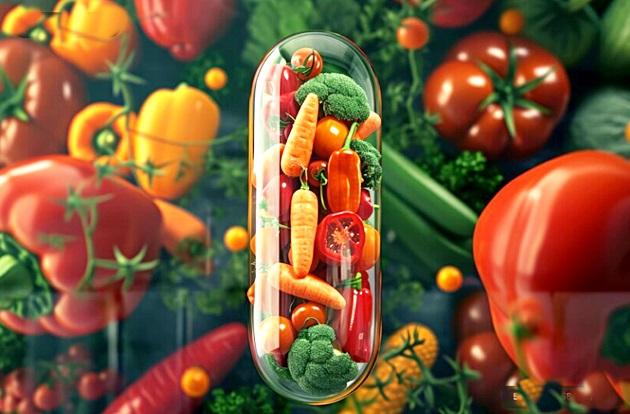867

A Strategic Sector Under Pressure: Europe's Oilseed Farmers at a Crossroads
Exactly one month ago, Christophe Hansen, the European Commissioner for Agriculture and Food, presented the Commission's vision for the future of agriculture, according to a statement released by COPA-COGECA.
Among the numerous measures announced, one stood out in particular for European protein crop producers: a renewed ambition to develop a comprehensive plan to address the EU’s dependence on imported proteins.
The term “renewed ambition” is appropriate, as those familiar with Brussels policymaking know this has been a recurring challenge. Both Phil Hogan and Janusz Wojciechowski attempted to tackle the issue in the past. However, as the Draghi Report rightly points out, “dependencies become vulnerabilities.” In light of that warning, this problem can no longer be postponed, despite its complexity.
Oilseed production is a cornerstone of EU agriculture, representing the second most widespread arable crop after cereals. Rapeseed and sunflower not only support the EU food and feed industries—contributing to the reduction of dependency on imported plant proteins—but also serve as key resources for renewable energy in transport, directly supporting decarbonisation and energy independence.
Moreover, oilseeds play a vital role in sustainable farming through improved crop rotation, carbon storage, and the provision of various ecosystem services. Nevertheless, despite its strategic importance for EU self-sufficiency, protecting this sector does not appear to be a priority—at least judging by the gap between words and actions.
In recent years, Europe’s oilseed sector has been hit by a combination of production challenges and trade disruptions. Climate change has brought extreme weather conditions, lower yields, and the emergence of new pests and diseases.
At the same time, EU farmers have lost access to key crop protection tools. Rapeseed growers, for example, are now left with just eight active substances to fight pests—five of which share the same mode of action. Meanwhile, alternative solutions remain scarce, with no new active substances (including biocontrol options) approved in the last five years, and New Breeding Techniques (NBTs) still unavailable.
Trade dynamics have only compounded these difficulties. The war in Ukraine triggered a surge in oilseed imports, while the biodiesel market—critical for the sector—has been flooded with cheap and potentially fraudulent biodiesel from China.
Following the war, the EU fully liberalised trade with Ukraine and established “green corridors” to ease transport. With few restrictions on Ukrainian oilseeds and only limited tariffs on oils, Ukraine’s exports of oilseeds and related products (meal and oil) to the EU doubled—from 5.5 million tonnes in 2021 to 11 million tonnes in 2024.
While the EU imposed import restrictions on products like sugar, no action has been taken to curb oilseed imports.
A similar story is unfolding with Chinese biodiesel. Imports soared from 0.6 million tonnes in 2019 to over 1.7 million tonnes in 2023, prompting the EU to impose anti-dumping tariffs at the end of 2024. However, loopholes remain.
EU regulations on biofuels grant used cooking oil (UCO) double the decarbonisation value compared to first-generation biodiesel from virgin vegetable oils—yet fraud control is lacking.
As a result, Chinese UCO exports surged by 39.4%, reaching 737,000 tonnes—much of which is suspected to be fraudulent palm oil, misclassified as renewable biofuel. The Commission is now considering stricter certification rules, but whether these will translate into concrete action remains uncertain.
With rising imports depressing prices and production costs increasing—fertiliser prices, for example, peaked at €1,000 per tonne post-war and have since stabilised around €400—the outlook for EU oilseed farmers is becoming increasingly fragile. And if global trade tensions escalate, the situation could worsen.
All of this points to a significant paradox: despite its strategic importance, the outlook for the EU oilseed sector is growing ever more precarious. With global trade uncertainty rising—particularly in light of a potential second Trump administration—the risks are multiplying.
A second Trump term is already sending shockwaves through global markets. Canada, the world’s third-largest oilseed exporter, ships over 3.2 million tonnes of oilseeds and related products to the U.S. each year. If Trump imposes a 25% tariff, much of this surplus could be redirected to the EU, intensifying pressure on European producers.
Meanwhile, the U.S. has already announced a ban on UCO imports from China starting in 2025. In 2024, the U.S. imported over 1.2 million tonnes of Chinese UCO, a significant portion of which is likely to be rerouted to the EU—further destabilising the biodiesel market.
The EU cannot afford additional pressure on its oilseed production. Urgent measures are needed to ensure both the availability and affordability of essential production tools while also mitigating trade risks. The complexity of the issue means there is no one-size-fits-all solution. Instead, a series of targeted policies will be required to effectively support the sector.
The Commission must ground its future protein strategy in accurate assessments and deliver concrete, actionable proposals that lead to real impact on the ground. In my view, for the strategy to succeed, it must also focus on one of the largest contributors to Europe’s plant protein production: oilseed meal—a crucial by-product of a sustainable biofuel policy.
At Copa-Cogeca, we are actively working to provide input and policy recommendations that reflect the realities faced by farmers and agricultural cooperatives. As time moves on, we hope to engage constructively with the Commission to ensure that Europe’s oilseed sector is not only protected, but strengthened for the future.




